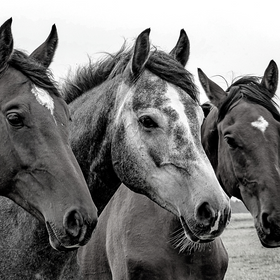
Common GI Issues for Dogs: Causes and Treatments
Causes of Gastrointestinal (GI) issues can stem from issues like intestinal blockages, medications, stress, or other medical conditions. Your dog’s diet is important to his daily health and wellness. GI issues can be triggered by a change in diet, amount of food, or allergies. Dogs will often show stress through physical symptoms. This stress can bubble up as digestive symptoms.
Moreover, many veterinarians believe dogs prone to anxiety are also prone to GI issues. More concerning medical conditions like liver disease, cancers, and pancreatitis can cause significant GI issues. Minor problems like inflammatory bowel disease can also cause GI symptoms. If your dog develops these symptoms suddenly and persistently with no change to diet or routine, immediately contact your veterinarian.
Note: We are not veterinarians, this is not medical advice. Please contact your veterinarian if your dog is experiencing GI issues.
Common Symptoms of GI Issues in Dogs
Dogs can suffer from many symptoms that point to GI issues. Despite these symptoms, it does not mean your dog is sick. Changes in food, environment, and stress can all cause GI symptoms. However, there are instances where these symptoms point towards a more significant problem, like allergies or disease.
If your dog develops GI symptoms suddenly, visit your veterinarian immediately.
Vomiting
An evident and unpleasant symptom for dog owners is vomiting. However, it is also one of the most common symptoms for a dog to have. Vomiting can be caused by countless things like intolerance to the food, infection, disease, indigestion, or intestinal blockage. A single instance of vomiting is not anything to panic about. Monitor your dog for other symptoms and more vomiting spells.
Diarrhea
Another common symptom for a dog to suffer from is diarrhea. Just like vomiting, it can be caused by a host of issues, including disease, stress, and intolerance to food. Dogs suffering from diarrhea will have loose stools, breaking of potty training, and ask to go outside more frequently.
Loss of Appetite
If you see your dog turning down food, it may be a symptom of something worse. Problems within the GI tract can cause your dog to lose interest in food. He will eat less or not at all. Stress, pain, and many other underlying conditions can cause a loss of appetite.
Abdominal Pain
Overall, dogs try to hide pain from their owners. However, if you notice your dog suffering from abdominal pain, call your veterinarian immediately. When touched, your dog will manifest his pain in whining, wincing, panting, and growling. This level of pain can point to serious issues with your dog.
Flatulence
Of course, dogs experience flatulence. It is part of a healthy digestive system. On the other hand, an increase in flatulence may point to issues in digestion. Most often, increased flatulence means your dog is intolerant to his food.
Specific GI Issues in Dogs
Gastritis
One of the most common issues for a dog with GI symptoms is gastritis. Gastritis is an inflammation of the stomach lining. Dogs with gastritis will experience vomiting, loss of appetite, and pain. Treatment includes dietary changes, reduction in stressful triggers, and medication.
Pancreatitis
Inflammation of the pancreas is known as pancreatitis. It is caused by obesity and a high-fat diet. Your dog will exhibit symptoms like diarrhea, pain, and vomiting. Pancreatitis is a serious issue and will likely result in hospitalization. Your dog will need a change in his diet and IV fluids.
Gastroenteritis
Gastroenteritis is a more severe version of gastritis. Instead of an inflamed stomach, it is inflammation of the stomach and intestines. It is most often caused by infection or toxins. Your dog will suddenly develop symptoms of vomiting, diarrhea, and loss of appetite. Treatment will include medication to treat the infection and proper hydration.
Parvovirus
Parvovirus is a highly contagious and dangerous viral infection. It causes extreme vomiting and diarrhea. It can be a deadly infection, particularly for puppies and shelter dogs. The treatment is also expensive, including hospitalization, medication, and IV fluids.
Intestinal Parasites
Dogs are prone to intestinal parasites because they regularly play and smell dirt and animal feces. These parasites can be roundworms, hookworms, and tapeworms. If your dog has a parasite, he may vomit, lose weight, or experience diarrhea. Regular deworming can prevent parasites, but a simple medication can help eliminate an infestation.
Preventive Measures for GI Issues
Preventive measures can go a long way in avoiding common GI issues in dogs. Here are some important steps that pet owners can take:
- Feed a balanced diet: A balanced diet will give your dog the best start to a healthy digestive tract.
- Use supplements: Supplements like the Organic Gut Solution can alleviate your dog’s GI symptoms. You can mix this powder with dry or wet food. It will help harden loose stools, settle a GI tract from digestive imbalance, and minimize allergies.
- Provide clean water: Fresh water should always be available to dogs. Dehydration can lead to constipation, which can cause GI issues.
- Avoid sudden changes in diet: Sudden changes in diet can cause digestive upset. If a change in diet is necessary, it should be done gradually over several days.





